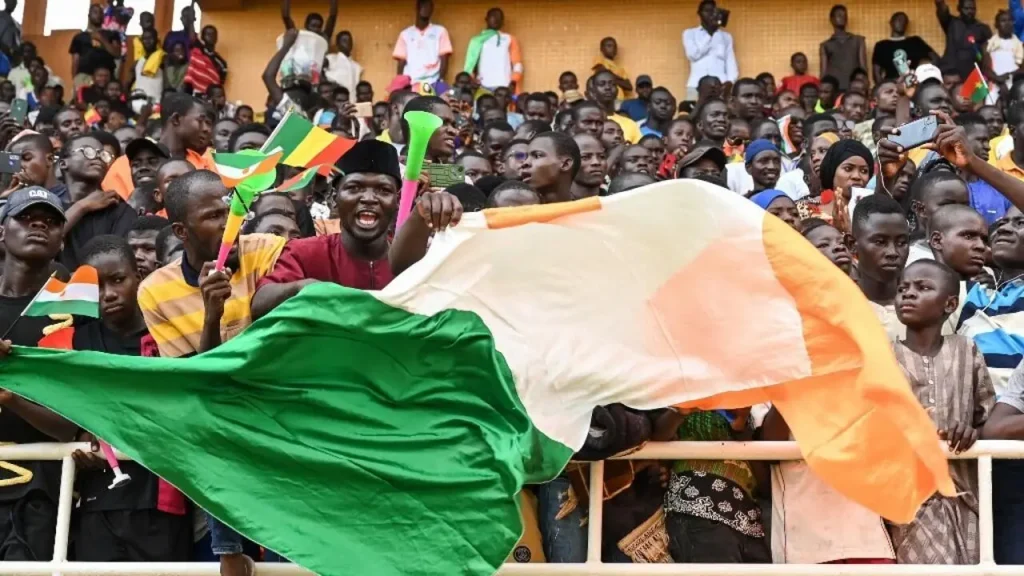On August 14, 2023, the African Union (AU) convened a Peace & Security Council meeting in Addis Ababa, Ethiopia, to address the ongoing crisis in Niger following the July 26 coup that ousted President Mohamed Bazoum. The meeting, attended by AU Commission chief Moussa Faki Mahamat, Niger’s official government representatives, and the Economic Community of West African States (ECOWAS), aimed to find a diplomatic resolution to restore constitutional order. “Coups are not a solution to the challenges we face as a continent,” Kenyan President William Ruto stated, emphasizing the AU’s support for ECOWAS’s demand to reinstate Bazoum and halt the region’s slide toward undemocratic governance.
ECOWAS’s Sanctions and Military Threats
ECOWAS imposed severe sanctions on Niger, including cutting financial transactions, electricity supplies, and closing borders, after the junta, led by General Abdourahamane Tchiani, ignored a one-week ultimatum ending August 6 to restore Bazoum. The bloc activated a standby force for potential military intervention but maintained diplomacy as its priority. “No option is taken off the table, including the use of force as a last resort,” Nigerian President Bola Tinubu declared at an August 10 summit in Abuja. However, regional divisions emerged, with Mali and Burkina Faso warning that intervention would be a “declaration of war” and sending a solidarity delegation to Niamey.
Junta’s Defiance and Mixed Signals
The junta, holding Bazoum under “deplorable conditions” at his residence, formed a new government on August 9, led by Prime Minister Ali Mahaman Lamine Zeine, a former finance minister. Zeine asserted Niger’s resilience against sanctions, stating, “We think we should be able to overcome it, and we will overcome it,” while expressing openness to preserving ties with Nigeria and ECOWAS for economic cooperation. The junta’s mixed signals included openness to diplomacy—meeting Nigerian mediators like Sanusi Lamido Sanusi on August 9—while threatening to prosecute Bazoum for “high treason and undermining security,” a move criticized by the UN and ECOWAS as lacking legal basis.
Internal Resistance and Regional Stakes
On August 9, former Tuareg rebel Rhissa Ag Boula announced the Council of Resistance for the Republic (CRR), vowing to restore Bazoum by “any means necessary,” raising fears of internal conflict. ECOWAS sanctions, cutting 70% of Niger’s electricity from Nigeria, worsened food insecurity for 4.4 million aid-dependent Nigeriens, prompting junta accusations of “illegal, inhumane” measures. The AU expressed caution, reportedly rejecting military intervention at its August 14 meeting due to risks of a “bloody civil war,” with northern and southern African states opposing ECOWAS’s plans. Niger’s strategic uranium resources and Western military presence, including 1,100 U.S. and 1,500 French troops, heightened global concerns over Russian influence via Wagner mercenaries.
Ongoing Impasse and Geopolitical Shifts
By August 2025, the crisis remained unresolved. Niger, alongside Mali and Burkina Faso, withdrew from ECOWAS in January 2024 to form the Alliance of Sahel States (AES), aligning with Russia and expelling Western forces. ECOWAS appointed mediators, including Togo, to engage the AES, but talks stalled. The junta’s consolidation, backed by public rallies and Russian support, has weakened ECOWAS’s leverage, with sanctions disproportionately harming civilians. “The sanctions hurt Nigeriens more than the junta,” noted the International Crisis Group, urging a recalibration to target coup leaders directly. The AU and ECOWAS face a critical test to balance democratic principles with regional stability amid growing anti-Western sentiment in the Sahel.






